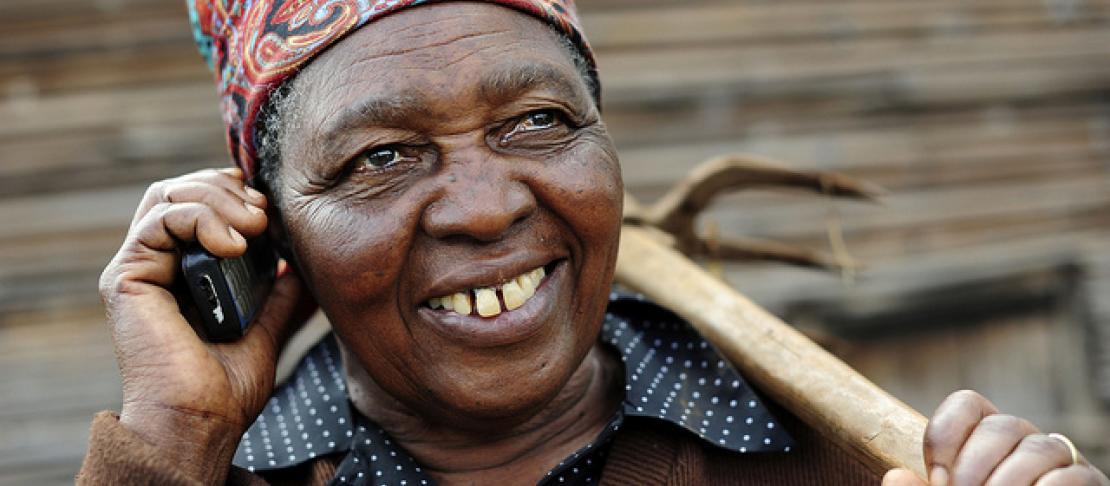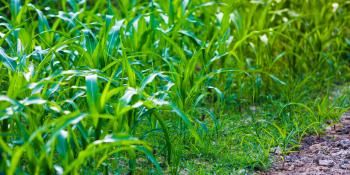How can climate services improve the lives of smallholder farmers and pastoralists?

Farmers and pastoralists in Africa have survived by mastering the ability to cope with and adapt to varying weather and climatic conditions.
Increasingly variable climate and the rapid pace of other drivers of change are, however, overwhelming local knowledge and traditional practices for coping with climate related risks. Climate services—climate and weather information and advisories—can help farmers and pastoralists better manage climate-related agricultural risks and adapt to climate change.
CCAFS East Africa organized a webinar on November 23, 2016 to create an opportunity for scientists, technical experts and other stakeholders to discuss the provision of tailored weather and climate information that meets the needs of smallholder farmers and pastoralists in Africa. More than 40 participants joined the online webinar to understand and learn more about tools and methods that can be used to enhance climate information services. The webinar was moderated by John Recha from the CGIAR Research Program on Climate Change, Agriculture and Food Security (CCAFS).
Listen to the webinar recording:
Five panelist, drawn from different institutions, shared successful experiences from different parts of Africa that served as models for how different organizations can work together to design and implement comprehensive climate services for agriculture and food security. To set the scene for the discussions, James Hansen, CCAFS Climate Risk Management Flagship Leader made a presentation on the global perspective on climate services. He shared a history of climate services from 1910 to 2011 and how climate services can work for smallholder farmers and pastoralists at scale.
Climate data is the foundation of reliable climate services.
Speaking on tools and methods, Tufa Dinku from International Research Institute for Climate and Society (IRI) shared emerging lessons and experiences from Africa with the Enhancing National Access to Climate Services (ENACTS) project working in 11 countries in Sub-Saharan Africa: Ethiopia, Gambia, Ghana, Madagascar, Mali, Rwanda, Tanzania, Zambia, Kenya, Uganda and Malawi.
From the national to local scale there were three presentations. Desire Kagabo, Project coordinator for Rwanda Climate Services for Agriculture project shared experiences from Rwanda. He gave an example of how the project is channeling climate services information through a decentralized agricultural extension model, building on the innovative “Twigire Muhinzi” extension model and Participatory Integrated Climate Services for Agriculture (PICSA). Desalegn Ayal of Addis Ababa University talked about good practices and challenges of Borana Indigenous Weather Forecasting Services. Even though the precision and credibility of all modes of traditional weather forecast is steadily declining due to repeated faulty predictions, indigenous weather forecasters command high respect among the Borana herders. He therefore recommends the integration of both indigenous and modern systems. Finally, Ousmane Ndiaye of the National Civil Aviation and Meteorology Service (ANACIM) in Dakar, Senegal demonstrated how smallholders in Kaffrine, Senegal in West Africa, are using climate information to make farm-based decisions to increase resiliency in food insecurity.
Some of the emerging issues from the participants included lessons and experiences on how climate and weather information, advisory services and traditional knowledge can be used to improve the lives of smallholder farmers and pastoralists in Africa. The participants were also interested in knowing the role agricultural extension can play in capacity building of climate services, and how monitoring and evaluation can be embedded to add value to phone-based climate services. Integration of feedback loops was emphasized to avoid top-down approaches.
See the webinar presentations:
The webinar was hosted by CCAFS as part of the webinar series hosted under the Climate and Agriculture Network for Africa (CANA)
Read more:
- CCAFS blog: Better decision support for improved livelihoods among farmers in northern Ghana
- CCAFS blog: Bridging climate forecasts with farmer realities: The story of Seck and Ousmane
- Report: Impact assessment of communicating seasonal climate forecasts in Kaffrine, Diourbel, Louga, Thies and Fatick (Niakhar) regions in Senegal: Final Report for CCAFS West Africa Regional Program
Tabitha Muchaba is a Research Assistant at CCAFS EA. This story was edited by Maren Radeny, John Recha and Catherine Mungai all from CCAFS EA.



